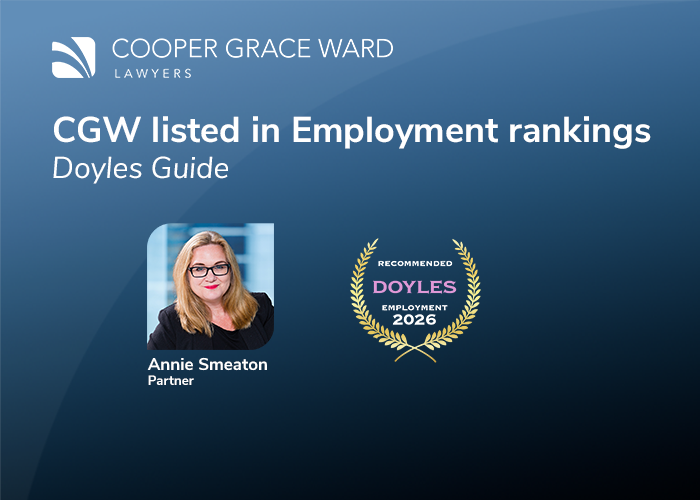The Federal Court has reprimanded a meat wholesaler after compelling a foreign employee to work 50-hour weeks without the payment of overtime.
Introduction
The recent case of Australasian Meat Industry v Dick Stone Pty Ltd [2022] FCA 512 offers a timely warning to employers engaging vulnerable workers, emphasising that conduct in breach of the civil penalty provisions under the Fair Work Act 2009 may subject employers to hefty financial penalties.
Facts
In this case, Mr Boateng, was a Ghanaian immigrant employed (within three weeks of arriving in Australia) by Australian meat wholesaler, Dick Stone Pty Ltd to work as a knife hand labourer. Before commencing his employment, Mr Boateng was provided with an employment contract that, inter alia:
- represented Mr Boateng’s ordinary weekly hours as 50 hours per week
- neglected to mention any overtime rates he was entitled to
- failed to reference the relevant award.
Given that Mr Boateng had only recently immigrated to Australia, he was unaware of the relevant workplace relations laws that protected his employment rights and entitlements. Mr Boateng agreed to the employment contract and began working routine 50-hour weeks at a standard rate of pay. No overtime was paid to Mr Boateng for the hours he worked in excess of the statutory 38 hour maximum. Accordingly, Mr Boateng and the Australasian Meat Industry Employees Union commenced proceedings in the Federal Court arguing that the employer contravened the National Employment Standards (NES) and Meat Industry Award 2020 by compelling Mr Boateng to work unreasonable additional hours without overtime.
Decision
The Federal Court supported Mr Boateng’s claim and held that the requirement for a migrant worker to work additional hours, in excess of 38 hours per week and without the payment of overtime, was unreasonable and unduly compromised the health and safety of the employee. Consequently, the employer was fined $93,000 for engaging in numerous contraventions of the Fair Work Act 2009 (Cth) and the Award.
‘Unreasonable additional hours’
While it was not in contention that Mr Boateng’s 50-hour work weeks aligned with the business needs of the employer, this did not render those hours reasonable. On the contrary, Justice Katzmann held that, when regard was had to the reasonableness criteria contained in section 62(3) of the Fair Work Act, it was unequivocal that the additional hours posed an adverse health and safety risk to Mr Boateng. This was because an inherent requirement of Mr Boateng’s role involved the use of sharp knives that, when combined with exhaustion and fatigue stemming from excessive work hours, exacerbated the threat to his physical health.
Takeaways for employers
Employers should be aware that compelling an employee to work excessive overtime runs the risk of contravening the NES and causing adverse health and safety risks to their employees. In the present case, it was inconsequential that Mr Boateng voluntarily agreed, in his employment contract, to work under those conditions.
The case also gives rise to broader psychological health and safety considerations that an employer must be cognisant of when requiring employees to work reasonable additional hours. As of 1 April 2023, employers will owe a more onerous positive duty to eliminate psychosocial hazards in the workplace, so far as reasonably practicable. Undoubtedly, excessive work hours can present a high job demand hazard that, in absence of appropriate controls, could compromise the psychological wellbeing of an employee.







